
Colorectal Cancer
Latest News
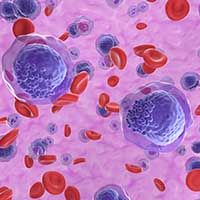
Efforts Are Underway to Refine Prognostic Value of ctDNA to Guide Adjuvant Therapy in CRC

IDEA Collaboration Affects Choice of Chemotherapy Regimen, Treatment Duration in Stage III Colon Cancer
Latest Videos

CME Content
More News

Howard S. Hochster, MD, discusses data from the phase 3 FRESCO-2 trial of fruquintinib plus best supportive care in metastatic colorectal cancer.

Daneng Li, MD, discusses the evolution of treating patients with HER2-positive colorectal cancer and highlights the effects of implementing HER2-targeted therapy in this patient population.

The FDA has granted 2 breakthrough therapy designations to trastuzumab deruxtecan for the treatment of patients with unresectable or metastatic HER2-positive solid tumors that have progressed after prior treatment and who have no satisfactory alternative treatment options, and for those with HER2-positive metastatic colorectal cancer who have received at least 2 prior lines of therapy.

Thierry André, MD, discusses the investigation of trifluridine/tipiracil plus bevacizumab in patients with metastatic colorectal cancer, including how its use as a standard of care in the third line supported its investigation in the first-line setting, the regimen’s efficacy and safety in the SOLSTICE trial, and the importance of this combination for patients in this space despite negative trial results.
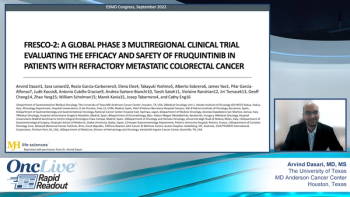
Arvind Dasari, MD, MS, presents data from the FRESCO-2 clinical trial evaluating fruquintinib in patients with refractory metastatic colorectal cancer, and provides insights on the clinical implications of the results.

Circulating tumor DNA status at the time of postoperative minimal residual disease assessment was found to be a prognostic factor for disease-free survival in patients with radically resected stage II to IV colorectal cancer.

Michael Cecchini, MD, expands on key updates in gastrointestinal cancer from the 2023 ASCO Annual Meeting, including the clinical significance of findings from the PROSPECT and phase 3 PRODIGE 23 trials of perioperative chemotherapy vs selective standard chemoradiation.

Megan Hitchins, PhD, discusses the rationale for conducting an analysis on the prevalence of high-risk constitutional MLH1 methylation in patients with early-onset colorectal cancer and endometrial cancer.

HER2 amplification appears to be prognostic in patients with RAS wild-type metastatic colorectal cancer but may not be predictive of survival benefit as a first-line treatment option in combination with panitumumab vs standard-of-care bevacizumab.

Oncologists globally explore trends, challenges in diagnosis, and future directions in patients with colorectal cancer.

Marwan G. Fakih, MD, discusses the main objective and design of the observational BASECAMP-1 study and how it functions alongside the phase 1/2 EVEREST-1 study in patients with solid tumors.

Patients with mismatch repair–deficient and/or microsatellite instability metastatic colorectal cancer experienced a progression-free survival benefit with longer disease control following treatment with avelumab compared with standard second-line chemotherapy.
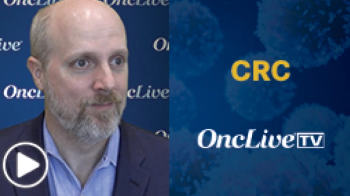
Scott Kopetz, MD, PhD, FACP, discusses the phase 3 BREAKWATER trial in patients with BRAF V600E–mutant metastatic colorectal cancer.

The FDA has granted a breakthrough device designation to HLA-LOH as a companion diagnostic test, according to an announcement from Tempus.

Isabelle Franklin, discusses strategies healthcare providers can implement to address or ameliorate disparities in place that are affecting screening rates in colorectal cancer.

Isabelle Franklin, discusses future steps to be taken following an investigation into the association between self-reported social needs and colorectal cancer screening rates.

Megan Hitchins, PhD, discusses results from an analysis on the prevalence of high-risk constitutional MLH1 methylation in early-onset colorectal and endometrial cancers displaying mismatch repair deficiency.

The first patients have been dosed in the phase 2 portion of a phase 1/2 trial evaluating BDC-1001 monotherapy in patients with HER2-positive colorectal cancer, endometrial cancer, and gastroesophageal cancer.

John L. Hays, MD, PhD, discusses unmet needs for patients with colorectal cancer and future directions for research in this disease.

Amanda Bloomer, PhD, discusses the rationale for launching the ColoCare study, an investigation into the health-related quality of life outcomes of younger vs older adult patients with newly diagnosed colorectal cancer.
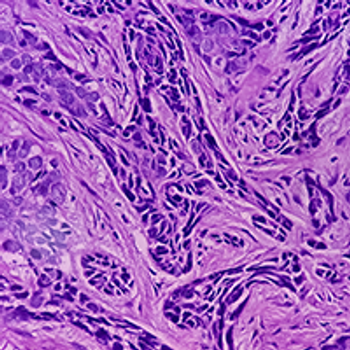
Delays in time to treatment initiation may be associated with demographic and socioeconomic disparities, with care coordination, clinical, and socioeconomic factors representing potential predictors of TTI, according to findings from a retrospective cohort study published in JCO Oncology Practice.
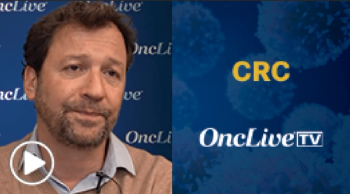

The FDA has approved trifluridine and tipiracil (Lonsurf) plus bevacizumab (Avastin) for patients with metastatic colorectal cancer who were previously treated with fluoropyrimidine-, oxaliplatin-, and irinotecan-based chemotherapy; a VEGF inhibitor; and an EGFR inhibitor, if they have RAS wild-type disease.

Isabelle Franklin, discusses the investigation of the correlation between self-reported social needs and colorectal cancer screening.

The safety and efficacy of adding total ablative therapy of all disease sites to standard systemic treatment is being investigated in patients with limited metastatic colorectal cancer as part of the ongoing phase 3 ERASur study.






































